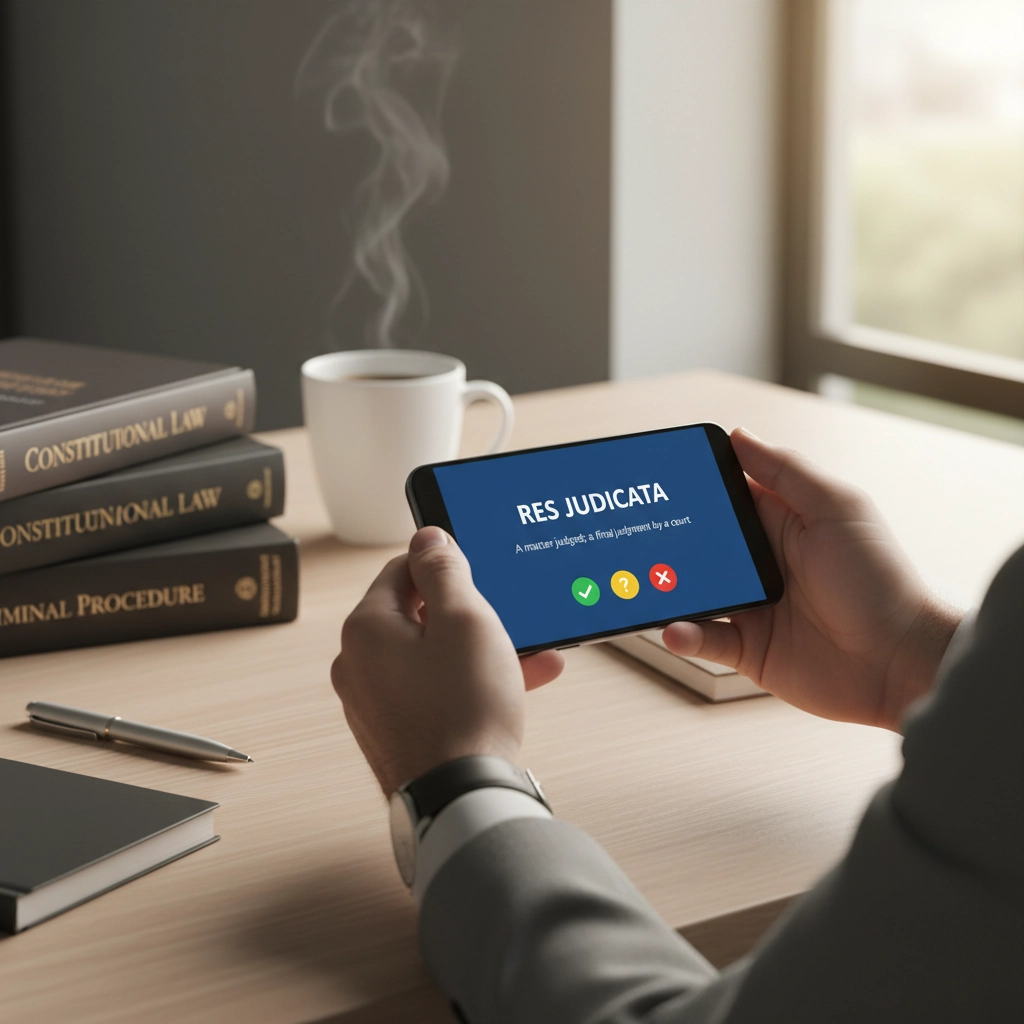Contents
ToggleIf you're a lawyer, law student, or legal professional working in an English-speaking environment, you already know that mastering legal English vocabulary isn't just helpful: it's absolutely essential for your success.
I've worked with countless legal professionals over the years, and one thing I've consistently observed is this: those who command strong legal terminology achieve far better outcomes in their careers. Whether you're drafting contracts, arguing cases, or advising clients, your vocabulary is your professional toolkit.
Let me share what I've learned about building this crucial skill set.
Why Legal English Vocabulary Matters More Than You Think
Legal English isn't just regular English with a few fancy words thrown in. It's a specialized language system where precision means everything.
In my experience working with legal professionals, I've seen how a single misunderstood term can derail an entire negotiation. Legal vocabulary often carries meanings that differ dramatically from everyday usage, and even native English speakers need dedicated study to master these nuances.

Here's something that might surprise you: according to recent industry data, legal professionals with strong English vocabulary skills achieve 30% higher success rates in international cases. That's not a small advantage: that's career-changing.
Consider this too: 85% of international legal documents and disputes are conducted in English. If you're planning to work in business law, international transactions, or any cross-border legal matters, your legal English vocabulary directly impacts your opportunities.
The Unique Challenge of Legal Terminology
What makes legal English so challenging? Let me break it down based on what I've observed in classrooms and professional settings.
First, legal terms are incredibly precise. In everyday English, you might use "agreement" and "contract" interchangeably. In legal English, these terms have distinct meanings that can affect the entire outcome of a case.
Second, many legal terms come from Latin, French, and Old English. Terms like "habeas corpus," "voir dire," and "tort" don't follow modern English patterns, making them harder to remember and use correctly.
Third, legal language evolves constantly. New legislation, court decisions, and changing business practices introduce fresh terminology regularly. What worked five years ago might not be sufficient today.
Proven Strategies for Mastering Legal English
Through years of teaching and observing successful legal professionals, I've identified several strategies that consistently work.
Start with Contextual Learning
Don't just memorize definitions. I always recommend reading legal news on platforms like Law.com or watching legal proceedings online. This helps you understand not just what terms mean, but how they're actually used in practice.
For example, instead of just learning that "affidavit" means "a written statement confirmed by oath," watch how lawyers use this term when discussing evidence or witness testimony.
Use Spaced Repetition
Legal terminology sticks better when you review it systematically over time. I've seen excellent results when students use flashcard apps like Anki to review legal terms with real-world examples.
Create cards that include the term, definition, and a practical sentence showing usage. Review them daily, but space out the intervals as you become more confident.

Practice in Professional Contexts
Join legal discussion groups or participate in mock trials where you can use these terms naturally. I always tell my students: knowledge becomes fluency through practice.
Try writing case summaries or professional emails using newly learned terms. Aim to incorporate 5-10 new legal terms into your active vocabulary each week.
Essential Legal Terms Every Professional Needs
Let me share some fundamental legal English vocabulary that forms the foundation for more specialized knowledge.
Contract and Business Law Terms
Contract: An agreement between two or more parties that creates legal obligations. Unlike a casual agreement, a contract is legally enforceable.
Breach of Contract: When one party fails to fulfill their contractual obligations. This is different from simply changing your mind about an agreement.
Consideration: Something of value exchanged between parties in a contract. This could be money, services, or even a promise to do something.
Termination Clause: A provision that specifies conditions under which a contract can be ended. These clauses protect both parties by establishing clear exit procedures.
Court and Litigation Terms
Counsel: Legal advice or the lawyers representing parties in a case. When someone says "I need to consult with counsel," they mean their lawyer.
Conviction: A formal declaration that someone is guilty of a criminal offense. This is different from an arrest or being charged with a crime.
Counterclaim: A claim made by a defendant against the plaintiff in the same legal proceedings. This allows defendants to pursue their own legal remedies.

Evidence and Procedure Terms
Deposition: Sworn testimony given outside of court, usually in a lawyer's office. This testimony can be used later during trial.
Discovery: The pre-trial process where both sides gather evidence and information. This includes depositions, document requests, and interrogatories.
Motion: A formal request asking the court to make a ruling or take specific action. Motions must follow specific legal procedures and deadlines.
Building Your Legal Writing Skills
Strong legal vocabulary means nothing if you can't use it effectively in writing. I've noticed that successful legal professionals focus on clarity and precision rather than trying to sound impressive.
When drafting legal documents, use legal terms accurately but don't overcomplicate your language. Your goal is clear communication, not showing off your vocabulary.
Practice writing different types of legal documents: contracts, letters to opposing counsel, briefs, and client communications. Each requires slightly different vocabulary and tone.
Common Mistakes to Avoid
In my experience, new legal professionals often make these vocabulary mistakes:
Using legal terms incorrectly because they sound impressive. Always double-check definitions and usage before including unfamiliar terms in important documents.
Mixing up similar terms. "Warranty" and "guarantee" have different legal implications, as do "liable" and "responsible."
Overusing Latin phrases. While some Latin terms are standard in legal writing, don't use them just to sound professional.

Developing Confidence in Legal Communication
Building legal English vocabulary is just the first step. You also need confidence to use these terms in high-pressure situations.
Start by using new vocabulary in low-stakes situations. Practice explaining legal concepts to friends or family members using proper terminology. This builds your comfort level with professional language.
Join professional organizations where you can network with other legal professionals. Listening to how experienced lawyers communicate will improve your own skills naturally.
Consider taking continuing education courses focused on legal writing or communication. Many bar associations offer these programs specifically for developing professional language skills.
Practical Application Techniques
Here are some specific exercises I recommend to my students:
Daily Legal News Summaries: Read legal news and write brief summaries using proper legal terminology. This combines vocabulary practice with staying current on legal developments.
Mock Client Meetings: Practice explaining complex legal concepts using appropriate vocabulary. This prepares you for real client interactions.
Document Review Exercises: Analyze contracts or legal documents, identifying and defining legal terms. This improves both vocabulary and analytical skills.

Moving Forward with Your Legal English Journey
Mastering legal English vocabulary is a continuous process, not a one-time achievement. The legal field evolves constantly, and your vocabulary needs to evolve with it.
Set realistic goals for yourself. Instead of trying to learn hundreds of terms at once, focus on building solid foundations in your practice areas. Business law vocabulary will differ from criminal law terminology, so prioritize based on your career focus.
Remember that even experienced lawyers continue learning new terms throughout their careers. What matters is building strong foundational knowledge and developing systems for continuous improvement.
Your investment in legal English vocabulary will pay dividends throughout your career. Whether you're negotiating contracts, arguing in court, or advising clients, strong command of legal terminology gives you confidence and credibility.
Take this step-by-step approach, practice consistently, and don't be afraid to ask questions when you encounter unfamiliar terms. Every legal professional started where you are now.
The legal profession demands precision, and your vocabulary is one of your most important professional tools. Invest in it wisely, and it will serve you well throughout your career.





